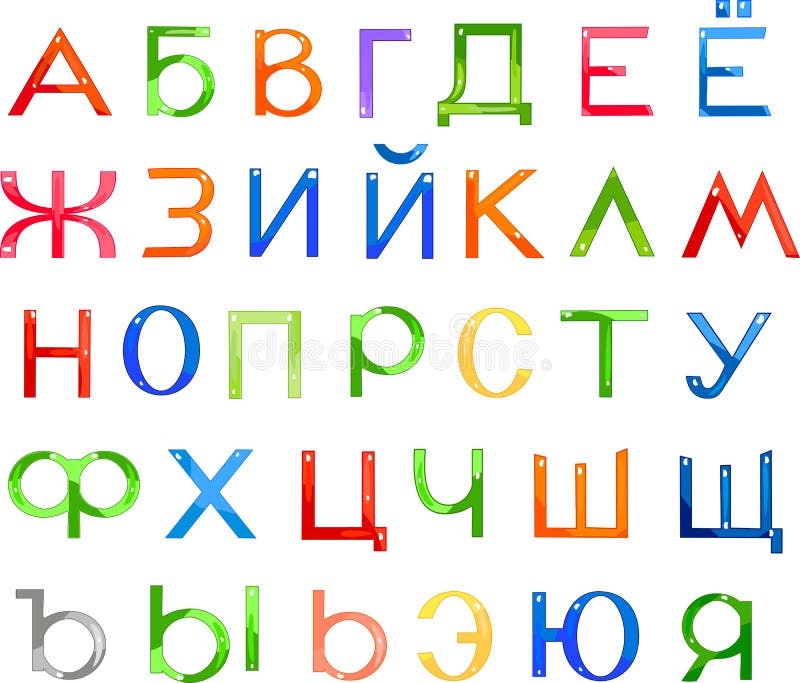
Start by blocking out your day into four 30-minute sessions.
ALPHABET IN RUSSIAN TO ENGLISH HOW TO
How To Learn The Cyrillic Alphabet In Two Days Saturday: Tackle The Familiar First

Sound impossible? We’ll break it down by day, assuming you’ll start on the weekend. If you’re looking to hit the ground running, we’ve created a roadmap to help you learn the Cyrillic alphabet in only two days. You’ll probably notice that many letters look the same or similar, so the only hurdle will be readjusting how your brain associates shapes with certain sounds. The Cyrillic script shares the same ancestor as our familiar Latin letters: the Greek alphabet. Sure, Cyrillic may look intimidating, but it’s not as unfamiliar as it looks. So where should a savvy traveler begin? First thing’s first: you should learn the Cyrillic alphabet.

Whatever your motivation for traveling in Russia, it’s vital to know some of the language, because only around 5 percent of Russians speak English. Russians sometimes start off assuming that English makes sense in that regard, and quickly lose their minds trying to spell or pronounce English based on these sensible rules, because English may be the least phonetic language in the world.Ĭontact us to learn more about BLEND’s translation services, and localization services.Whether you want to see Swan Lake at the historic Bolshoi Theatre in Moscow, take the legendary Trans-Siberian Railway across Siberia to Vladivostok, or go to one of the largest soccer matches in the world - you’ll need to understand a bit of Russian. This is a sensible system that English completely abandons. Russian is a phonetic language, which means you can accurately tell from the spelling of a word how it should be pronounced, and you can accurately tell from the pronunciation how to spell it. As a result, Russians often refer to things as him or her in ways that sound odd to English ears, such as ‘Have you seen my wallet? I left her on the bed.’ Phonetic Russian uses a gender system – all nouns in Russian are one of three genders. In contrast, English has a very complex system of articles. Russian has no articles – the entire concept can be alien to Russian speakers. It’s not strictly pronunciation, but often the stresses and beats of Russian speakers that sound strange to English ears for example, a lot of Russians end questions with a falling intonation instead of a rising one, which can sound strange or even rude to English speakers. As a result words like west often become vest for Russian speakers, and they frequently omit -ng endings from words like being. It’s a difficult one for Russian speakers because the vowel sound does not exist in Russian.Īs for consonants, Russian has about the same consonant letters as we do in English, but many are pronounced differently, which can cause some real trouble for Russians trying to learn English and vice-versa.


If you want a demonstration of how this complicates matters, find a Russian acquaintance and ask them to pronounce the word her. English also has diphthongs, while Russian does not. Russian in contrast only has 5, and there’s no such thing as long and short versions. PronunciationĮnglish has twelve vowel sounds – 5 long sounds and 7 short. The Russian Alphabet was partially based on the Greek alphabet, so there are some familiar letters and concepts there, but the pronunciation of these letters is very different, and there are other letters that are wholly unfamiliar to an English speaker. I’ve previous mentioned the Russian Alphabet, which has 33 letters and shares many with the Latin alphabet we’re all used to. Can you image a world where everyone speaks the same language? Alphabet


 0 kommentar(er)
0 kommentar(er)
